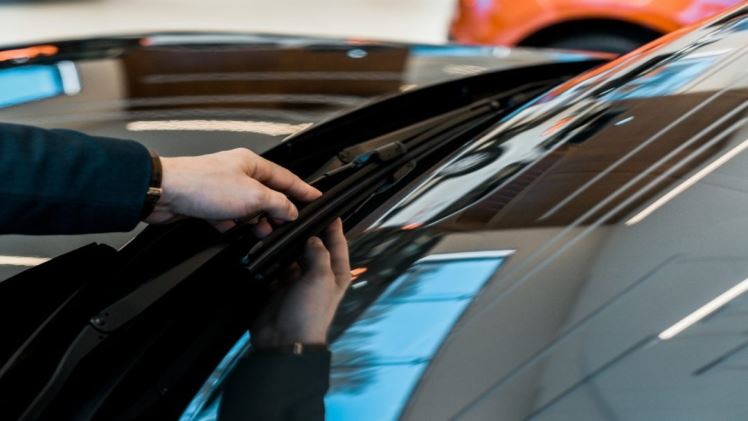Choosing the Right Type of Auto Glass for Replacement

Auto glass is an essential component of your vehicle, providing visibility, structural support, and weather protection. However, due to damage or wear and tear, you may need to replace it at some point. It is critical to make an informed decision when selecting the right type of auto glass for replacement. In this blog post, we will look at different types of auto glass and factors to consider when choosing the best option for your vehicle.
Auto Glass Types
- Original Equipment Manufacturer (OEM) Glass:
OEM glass is made by the same company that made your vehicle’s original glass. It is built to the manufacturer’s exact specifications and standards. When you choose OEM glass, you get a perfect fit, consistent quality, and compatibility with your vehicle’s advanced safety features. Visit for information catalytic converter price
Advantages of OEM Glass:
- Quality and fit are guaranteed.
- Maintains the structural integrity of your vehicle
- Compatible with cutting-edge safety systems
The Disadvantages of OEM Glass:
- Typically more expensive than aftermarket alternatives
- For older or rare vehicles, parts may be scarce.
- Aftermarket Glass:
Aftermarket auto glass is manufactured by third-party manufacturers and may not meet the same stringent standards as OEM glass. While this can be a cost-effective option, it is critical to conduct research and select reputable aftermarket brands to ensure quality and safety.
Advantages of Aftermarket Glass:
- Option that is less expensive
- A wide range of vehicle makes and models are available.
- High-quality options from reputable manufacturers are possible.
The Disadvantages of OEM Glass:
- Variations in quality and fit
- It is possible that the glass will not meet the same standards as OEM glass.
- Issues with advanced safety systems compatibility
- Dealer Glass:
Similar to OEM glass, dealer glass may come from a dealership’s own supply or bear the dealership’s branding. It has the same quality and compatibility as OEM glass and is an excellent choice for those who want the peace of mind that comes with a dealership-approved product.
Advantages of Dealer Glass:
- High-quality and appropriate for your vehicle
- Available from authorized dealers
- Guarantees OEM-level quality and fit
The Disadvantages of OEM Glass:
- It is possible that it will be more expensive than generic OEM glass.
- Availability may differ depending on dealership location.
Considerations for Choosing Auto Glass
- Safety Standards:
Safety standards should be prioritized when replacing auto glass. Check to see if the glass you select meets or exceeds federal safety standards. This is especially important if your vehicle has advanced safety features such as lane departure warning, adaptive cruise control, or automatic emergency braking, as the glass is critical to their operation.
- Compatibility:
Consider the compatibility of the auto glass with the make and model of your vehicle. Choosing the incorrect type of glass can result in fitment issues, leaks, and structural issues. To ensure compatibility, always consult a professional or follow manufacturer recommendations.
- Quality and Warranty:
Look for auto glass that meets or exceeds industry standards for quality. Warranty coverage for defects in materials and workmanship is provided by reputable manufacturers. A warranty can provide you with peace of mind and assurance that you are purchasing a high-quality product.
- Budget:
Your budget will undoubtedly influence your choice of auto glass. OEM and dealer glass are typically more expensive, whereas aftermarket options can be less expensive. To ensure the long-term dependability of your replacement glass, you must strike a balance between cost and quality.
- Professional Installation:
No matter what type of auto glass you select, professional installation is essential. Improper installation can cause leaks, wind noise, and structural damage. Select an experienced auto glass technician or shop, such as Charleston Auto Glass, LLC, with a proven track record of quality installations.
- Insurance Coverage:
Check your policy to see if auto glass replacement is covered. Many insurance companies provide windshield and glass replacement coverage, which can significantly reduce your out-of-pocket costs. Before proceeding with the replacement, make sure you understand the terms and conditions of your coverage.
- Local Regulations:
Keep in mind that some regions may have specific auto glass replacement regulations. These regulations may limit the type of glass you can use as well as the qualifications of the technician replacing it. To ensure compliance, research local requirements.
Conclusion
Choosing the appropriate type of auto glass for replacement is a critical decision. Your choice will have an impact on the safety, visibility, and overall structural integrity of your vehicle. When making your decision, consider factors such as safety standards, compatibility, quality, budget, and professional installation services. Whether you choose OEM, aftermarket, or dealer glass, prioritize safety and dependability to ensure your vehicle continues to provide a safe and enjoyable driving experience. Remember that talking to a reputable auto glass technician can help you make the best decision for your specific needs.


